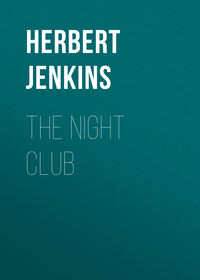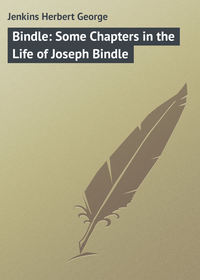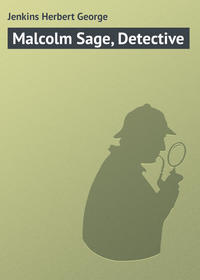 полная версия
полная версияMrs. Bindle: Some Incidents from the Domestic Life of the Bindles
"That's right, go on," she retorted tartly. "You're not hurting me, if you think it." She drew in her lips and crossed her hands in front of her, with Mrs. Bindle a manifestation of Christian resignation.
"I don't want to 'urt you, Lizzie; but I ask you, can you see me a-singin' carols?" He turned towards her a despondent eye of interrogation. "Me, at my age?"
"You're not asked to sing. You can go out and spend the evening swearing and drinking with your low companions." She moved over to the mantelpiece, and adjusted one of her beloved pink candles. "You'd only spoil the music," she added.
"If there wasn't no music there wouldn't be no religion," he grumbled. "It's 'armoniums in this world and 'arps in the next. I'd sooner be a pussyfoot than play an 'arp."
Mrs. Bindle ignored the remark, and proceeded to re-pile a plate of sausage-rolls to a greater symmetry, flicking an imaginary speck of dust from a glass-jug of lemonade.
"Now mind," she cried, as he walked towards the door, "I won't have you spoiling my evening, you'd better go out."
"An 'usband's cross-roads, or why Bindle left 'ome," he grinned as he turned, winked at the right-hand pink candle and disappeared, leaving Mrs. Bindle to gaze admiringly at her handiwork. She had laboured very hard in preparing for the evening's festivities.
IIHalf-way down the stairs, Mrs. Bindle paused to listen. Her quick ears had detected the sound of voices at the back-door, and what was undoubtedly the clink of bottles. Continuing her descent, she entered the kitchen, pausing just inside the door.
"That's all right, 'Op-o'-my-thumb. A dozen it is," she heard Bindle remark to someone in the outer darkness. There was a shrill "Good-night," and Bindle entered the kitchen from the scullery, carrying a beer-bottle under each arm and one in either hand.
"Who was that?" she demanded, her eyes fixed upon the bottles.
"Oh! jest a nipper wot 'ad brought somethink for me," he said with assumed unconcern.
"What did he bring?" she demanded, her eyes still fixed on the bottles.
"Some beer wot I ordered."
"What for?"
"To drink." He looked at her as if surprised at the question.
"I didn't suppose you'd bought it to wash in," was the angry retort. "There are four bottles in the cupboard. They'll last till Saturday. Why did you order more?" Mrs. Bindle was obviously suspicious.
"P'raps somebody'll get dry to-night," he temporised.
"Don't you tell me any of your wicked lies, Bindle," she cried angrily. "You know they're all temperance. How many did you order?"
"Oh, jest a few," he said, depositing the bottles on the lower shelf of the dresser. "Nothink like 'avin' a bottle or two up yer sleeve."
"Why have you got your best suit on?" She regarded with disapproval the blue suit and red necktie Bindle was wearing. Her eyes dropped to the white cuffs that only a careful manipulation of his thumbs prevented from slipping off altogether.
"Ain't it the night of the party?" he enquired innocently.
"I told you that I won't have you come in, you with your common ways and low talk."
"That's all right," he replied cheerfully. "I'm a-goin' to sit in the kitchen."
"And what good will that do you?" she demanded suspiciously. "Another time, when I'm alone, you can go out fast enough. Now because I've got a few friends coming, nothing will move you."
"But I want to 'ear the music," he protested. "P'raps I'll get to like carols if I 'ear enough of 'em," he added, with the air of one who announces that some day he hopes to acquire a taste for castor-oil.
"You're enough to try the patience of a saint," she cried, still eyeing the bottles of beer. "I suppose you're up to some devilment. It wouldn't be you to let me enjoy myself."
"I likes to see you enjoyin' yerself, Lizzie," he protested. "'Ow'd you like ole Ginger to run in an' – ?"
"If that man enters my house I'll insult him!" she cried, her eyes glinting angrily.
"That ain't easy," he replied cheerfully, "unless you was to drink 'is beer. That always gets 'is rag out."
"I won't have that man in my house," she stormed. "You shall not pollute my home with your foul-mouthed, public-house companions. I – "
"Ole Ging is all right," Bindle assured her, as he proceeded to fetch four more bottles from the scullery. "All you got to do is to give 'im some beer, play 'All is Forgiven Wot 'Appened on Peace Night,' an' let 'im stamp 'is feet to the chorus, an' 'e's one of the cheerfullest coves wot you'll find."
"Well, you bring him here and see what I'll do," she announced darkly.
"That's all right, Mrs. B., don't you worry. I jest asked 'Uggles to run round an' keep me company, and Wilkie may drop in if 'e ain't too busy coughin'; but they shan't get mixed up with the canaries – they won't want to after wot I'm goin' to tell 'em, an' we'll all be as quiet as mice."
"If you bring any of your friends into the parlour, Bindle," she cried, "I'll turn the gas out."
"Naughty!" he admonished, wagging at her a playful forefinger. "I ain't a-goin' to allow – "
"Stop it!" and with that she bounced out of the kitchen and dashed upstairs to the bedroom, banging the door behind her.
"Ain't women funny," he grumbled, as he fetched the remaining four bottles of beer from the scullery, and placed them upon the shelf of the dresser. "Nice ole row there'd 'ave been if I'd said anythink about turnin' out the gas. That's why ole 'Earty's so keen on them choir practices. I bet they got a penny-in-the-slot meter, an' everybody takes bloomin' good care to leave all their coppers at 'ome."
Overhead, Mrs. Bindle could be heard giving expression to her feelings in the opening and shutting of drawers.
"Well, well!" he sighed philosophically, "I suppose you can't 'ave everythink, as the cove said when 'e found the lodger 'ad gone orf with 'is trousers on Bank 'Oliday," and he proceeded to gather together two cracked tumblers, which had been censored by Mrs. Bindle as unfit for her guests, a large white mug, with a pink band and the remains of a view of Margate, and a pint jug with a pink butterfly on the spout.
"We're a-goin' to enjoy ourselves, any-old-'ow," he murmured as, picking up a meat-dish from the dresser, he slipped into the parlour, returning a moment later with it piled with rock-cakes, sandwiches and sausage-rolls. These he hid on the bottom shelf of the dresser, placing a pair of boots in front of them.
"Jest in time," he muttered, as Mrs. Bindle was heard descending the stairs. "It's – 'Ullo!" he broke off, "'ere's the first appetite," as a knock was heard at the front door.
For the next ten minutes, Mrs. Bindle was busy conducting her guests upstairs to "take off their things." Their escorts waited in the passage, clearing their throats, or stroking their chins. Convention demanded that they should wait to make a formal entry into the parlour with their wives.
With his ear pressed against the kitchen door, Bindle listened with interest, endeavouring to identify from their voices the arrivals as they passed.
By ten minutes past seven, the sounds in the passage had ceased – the guests had all come. In Mrs. Bindle's circle it was customary to take literally the time mentioned in the invitation, and to apologise for even a few minutes' lateness.
In order that the Montagues should not become confused with the Capulets, Bindle had taken the precaution of asking his own friends to come to the back door. He had added that the beer would be in the kitchen.
Mrs. Bindle had always been immovable in her determination that Bindle's "low public-house companions" should not have an opportunity of "insulting" her friends from the Alton Road Chapel.
With Mrs. Bindle the first quarter-of-an-hour of her rare social gatherings was always a period of anguish and uncertainty. Although everybody knew everybody else, all were constrained and ill-at-ease.
Miss Lamb kept twirling her rolled-gold bracelet round her lace-mittened wrist, smiling vacantly the while. Miss Death seemed unable to keep her hard grey eyes, set far too closely together, from the refreshment sideboard, whilst Mrs. Dykes, a tiny woman in a fawn skirt and a coral-pink blouse, was continually feeling the back of her head, as if anticipating some catastrophe to her hair.
Mrs. Hearty, who began in a bright blue satin blouse, and ended in canary-coloured stockings thrust into cloth shoes with paste buckles, beat her breast and struggled for breath. Mr. Hearty was negative, conversationally he was a bankrupt, whilst Mrs. Stitchley was garrulous and with a purpose. She was bent upon talking down the consciousness that she had not been invited.
Her excuse for coming, at least the excuse she made to herself, was that of chaperoning her daughter, a near-sighted, shapeless girl, with no chest and a muddy complexion, who never had and never would require such an attention.
The others were just neuter, except Mr. Thimbell, whose acute nervousness and length of limb rendered him a nuisance.
Mrs. Bindle was conscious that she was looking her best in a dark blue alpaca dress, with a cream-coloured lace yoke, which modesty had prompted her to have lined with the material of the dress. To her, the display of any portion of her person above the instep, or below the feminine equivalent of the "Adam's apple," was a tribute to the Mammon of Unrighteousness, and her dressmaker was instructed accordingly.
She moved about the room, trying to make everyone feel at home, and succeeding only in emphasising the fact that they were all out.
Everybody was anxious to get down to the serious business of the evening; still the social amenities had to be observed. There must be a preliminary period devoted to conversation.
After a quarter-of-an-hour's endeavour to exchange the ideas which none of them possessed, Mrs. Bindle moved over to Mr. Hearty and whispered something, at the same time glancing across at the harmonium. There was an immediate look of interest and expectancy on faces which, a moment before, had been blank and apathetic.
Mr. Goslett, a little man with high cheekbones and a criminal taste in neckwear, cleared his throat; Mr. Hearty surreptitiously slipped into his mouth an acid drop, which he had just taken from his waistcoat pocket; Mr. Dykes, a long, thin man, who in his youth had been known to his contemporaries as "Razor," drew his handkerchief with a flourish, and tested Mrs. Bindle's walls as if he were a priest before Jericho.
Some difficulty arose as to who should play Mr. Hearty's beloved instrument. Mrs. Stitchley made it clear that she expected her daughter, Mabel, to be asked. Mrs. Bindle, however, decided that Mrs. Snarch, a colourless woman who sang contralto (her own contralto) and sniffed when she was not singing contralto, should preside; her influence with her fellow-members of the choir was likely to be greater. Thus in the first ten minutes Mrs. Bindle scored two implacable enemies and one dubious friend.
Mrs. Snarch took her seat at the harmonium, fidgetted about with her skirts and blinked near-sightedly at the book of carols, which seemed disinclined to remain open. The others grouped themselves about her.
There was a medley of strange sounds, as each member of the party took the necessary steps to ensure purity of vocal tone. Added to this, Mr. Dykes pulled his collar away from his throat and stretched his neck upwards, as if to clear a passage for the sound he intended to send forth. Mr. Goslett pushed his sandy moustache up from his full lips with the back of his right forefinger, whilst Miss Stitchley moistened and remoistened her thin, colourless lips.
Then they joined together in song.
After a preliminary carol, in which no one seemed to take any particular interest, they got off well together with "Good King Wenceslas," a prime favourite at the Alton Road Chapel.
This evening it proved an enormous success.
Miss Stitchley's shrillness clashed with Mrs. Bindle's sharpness more than in the preceding carol. Mr. Hearty shut his eyes more tightly and was woollier, Mr. Dykes got more breath behind his boom, and Mrs. Dykes made more mistakes in her "harmony." Mr. Goslett raised his head higher, looking more than ever like a chicken drinking, whilst Miss Death's thin, upper notes seemed to pierce even Mr. Dykes's boom, just as they put Miss Lamb, always uncertain as to pitch, even further off her stroke.
Still, everyone enjoyed it immensely. Even Mrs. Stitchley, who confessed that she was "no 'and at singin'," croaked a few husky notes, as she sat acutely upright, due to a six-and-elevenpenny pair of stays she had bought that afternoon, nodding her head and beating time.
Mrs. Stitchley never lost an opportunity of making clear her position in regard to music.
"I'm musical, my dear," she would say. "It's in the fambly; but I don't sing, I 'as spasms, you know." She volunteered this information much as a man might seek to excuse his inability to play the French horn by explaining that he is addicted to bass viol.
"Now that's what I call a carol," said Mrs. Stitchley, endeavouring to prevent the upper portion of her stay-busk from burying itself in her flesh. Then, with sudden inspiration, she cried, "Encore! Encore!" and made a motion to clap her hands; but the stay-busk took the opportunity of getting in a vicious dig. With a little yelp of pain, Mrs. Stitchley's hands flew to her rescue.
Everybody was too pleased with "Good King Wenceslas" to trouble about Mrs. Stitchley's stay-busk. The word "encore," however, had given them an idea. Mr. Hearty looked interrogatingly at Mrs. Bindle.
"Do you think – " he began.
"Shall we have it again?" she queried, and there was a chorus of pleased acquiescence. Everybody was determined to put a little bit more into the encore than into the original rendering. There was only one dissentient voice, that of Mr. Dykes, who was eager for "The First Noël," which gave him such a chance for individual effort. When out with the Chapel Christmas singers, Mr. Dykes had been known to awaken as many as six streets with a single verse of that popular carol.
Mrs. Bindle almost smiled. Her party was proving a success.
Mrs. Stitchley, still holding the top of her stay-busk in her left hand, nodded approval, her beady little eyes fixed upon the singers. She was awaiting an opportunity to bring from her pocket a half-quartern bottle containing what, if she had been caught drinking it, she would have described as clove-water, taken medicinally.
To give colour to her assertion, she always chewed a clove after each reference to the bottle.
At The Golden Horse, Mrs. Stitchley's clove-water was known as Old Tom Special.
For an hour Mrs. Bindle's guests sang, encoring themselves with enthusiasm. Mr. Dykes got in his famous "Noël," he pronounced it "No-ho-hell," and everyone else seemed satisfied, if a little sore of throat.
It was half-past eight when Mrs. Bindle decided that the time had come for refreshments.
Throughout the evening her ears had been keenly alert for sounds from the kitchen; but beyond a suppressed hum of voices, she could detect nothing; still she was ill-at-ease. If Mrs. Hearty, for instance, knew that Bindle was in the house, she would certainly go over to the enemy.
In the matter of catering for her guests Mrs. Bindle had nothing to learn. She was a good cook and delighted in providing well for those she entertained. Her sausage-rolls, straightforward affairs in which the sausage had something more than a walking-on part, were famous among her friends. Her blanc-mange, jam puffs, rock-cakes, and sandwiches had already established her reputation with those who had been privileged to taste them. She basked in the sunshine of the praise lavished on what she provided. Without it she would have felt that her party was a failure.
This evening there was no lack of approval, cordially expressed. Mrs. Stitchley, who purposely had partaken of a light luncheon and no tea, was particularly loud in her encomiums, preluding each sausage-roll she took, from the sixth onwards, with some fresh adjective.
Mrs. Bindle was almost happy.
She was in the act of pouring out a glass of lemonade for Miss Lamb, when suddenly she paused. An unaccustomed sound from the kitchen had arrested her hand. Others heard it too, and the hum of conversation died away into silence, broken only by Mr. Hearty's mastication of a sausage-roll.
Through the dividing wall came the sound of a concertina. Mrs. Bindle put down the jug and turned towards the door. As she did so a thin, nasal voice broke into song:
For 'e was oiled in every joint,A bobby came up who was standin' point.He blew 'is whistle to summon more,Bill got 'ome on the point of 'is jaw.Then 'e screamed, an' kicked, an' bit their knees,As each grabbed a leg or an arm by degrees.An' that's 'ow Bill Morgan was taken 'omeOn the night of 'is first wife's funeral.The verse was followed by a full-throated chorus, accompanied by a pounding as if someone were hurling bricks about.
After that came silence; but for the hum of conversation, above which rose Bindle's voice forbidding further singing until "them next door 'ave 'ad a go."
The guests looked at one another in amazement. The set expression of Mrs. Bindle's face hardened, and the lines of her mouth became grim. Her first instinct had been to rush to the kitchen; but she decided to wait. She did not want a scene whilst her guests were there.
Gradually the carol-singers returned to their plates and glasses, and Mr. Hearty's mastication was once more heard in their midst. Mr. Hearty always ate with relish.
Unobserved by Mrs. Bindle, Mrs. Hearty stole out of the parlour on her way to investigate; a minute later Mrs. Stitchley followed. The solitude of the passage gave her an admirable opportunity of finishing the "clove-water" she had brought with her.
When everyone had assured Mrs. Bindle, in answer to her pressing invitation to refresh themselves still further, that they "really couldn't, not if she were to pay them," she turned once more to Mr. Hearty for the necessary encouragement to start another carol.
Their first effort, however, clearly showed that Mrs. Bindle's refreshments had taken the edge off their singing. Miss Stitchley had lost much of her shrillness, Mrs. Bindle was less sharp and Mr. Hearty more woolly. Mr. Dykes's boom was but a wraith of its former self, proving the truth of Mrs. Dykes's laughing remark that if he ate so many of Mrs. Bindle's sausage-rolls he wouldn't be able to sing at all. Only Miss Death was up to form, her shrill soprano still cleaving the atmosphere like a javelin.
As the last chords of the carol died away, the concertina in the kitchen took up the running, followed a minute later by the same voice as before, singing nasally about the adventures of a particularly rollicking set of boon-companions who knew neither care nor curfew.
At the first sound, Mrs. Bindle moved swiftly to the door, where she paused uncertainly. She was in a quandary. Her conception of good manners did not admit of a hostess leaving her guests; still something had to be done.
At the conclusion of the verse the voice ceased; but the concertina wailed on. Mrs. Bindle drew breath. Her guests gazed at one another in a dazed sort of way. Then with a crash came the chorus, rendered with enthusiasm:
We'll all roll 'ome, we'll all roll 'ome,For 'ome's the only place for weary men like us,We'll all roll 'ome, we'll all roll 'ome,For we 'aven't got the money to pay for a bus.For it's only 'alf-past two,An' it won't be three just yet.So we'll all roll 'ome, we'll all roll 'ome,An' lay down in the passage to be out of the wet.The applause that followed was annihilating. Accompanying it again was the curious banging sound which Mrs. Bindle had noticed before. She was sure she recognised amid the cries of approval, the sound of a woman's voice. That decided her. She had already noted the absence of Mrs. Hearty and Mrs. Stitchley.
Without so much as an apology to her guests, who stood still gazing blankly at one another, Mrs. Bindle slipped out into the passage, closing the door behind her, much to the disappointment of the others.
A moment later she threw open the kitchen door, conscious that one of the most dramatic moments of her life was at hand.
Through a grey film of tobacco smoke she saw half-a-dozen men, one seated on the floor, another on the fender, and two on the table. All were smoking.
About the room were dotted bottles and various drinking vessels, mostly cups, whilst on the mantelpiece were Bindle's white cuffs, discarded on account of their inconvenient habit of slipping off at every movement of his hands.
Mrs. Hearty was seated in front of the dresser, holding a glass of beer in one hand and beating her breast with the other, whilst opposite to her sat Mrs. Stitchley, one hand still clutching the top of her stay-busk, an idiotic smirk upon her moist face.
As Mrs. Bindle gazed upon the scene, she was conscious of a feeling of disappointment; no one seemed to regard her presence as any deviation from the normal. Mrs. Stitchley looked up and nodded. Bindle deliberately avoided her eye.
Mrs. Bindle's attention became focussed upon the man seated on her fender. In his hands he grasped a concertina, before him were stretched a pair of thin legs in tight blue trousers. Above a violent blue necktie there rose a pasty face, terminating in a quiff of amazing dimensions, which glistened greasily in the gaslight. His heavy-lidded eyes were half-closed, whilst in his mouth he held a cigarette, the end of which was most unwholesomely chewed. His whole demeanour was that of a man who had not yet realised that the curtain had risen upon a new act in the drama.
As Mrs. Bindle appeared at the kitchen door, the concertina once more began to speak. A moment later the musician threw back his head and gave tongue, like a hound baying at the moon:
For I love my mother, love 'er with all my 'eart,I can see 'er now on the doorstep, the day we 'ad to part.A man that's got a tanner, can always get a wife,But a mother is just a treasure that comes once in a life."Now then, ladies and gents, chorus if you please," he cried.
They did please, and soon Mrs. Bindle's kitchen echoed with a full-throated rendering of:
We all love mother, love her all the time,For there ain't no other who seems to us the same.From babyhood to manhood, she watches o'er our lives,For it's mother, mother, mother, bless the dear old name.It was a doleful refrain, charged with cockney melancholy; yet there could be no doubt about the enthusiasm of the singers. Mrs. Hearty spilled beer over her blue satin bosom, as a result of the energy with which she beat time; Mrs. Stitchley's hand, the one not grasping her stay-busk, was also beating time, different time from Mrs. Hearty's, whilst two light-coloured knees rose and fell with the regularity of piston-rods, solving for Mrs. Bindle the mystery of the sounds like the tossing about of bricks she had heard in the parlour.
Ginger was joining in the chorus!
As the singer started the second verse, Mrs. Bindle was conscious that someone was behind her. She turned to find Miss Stitchley standing at her shoulder. A moment later she realised that the little passage was overflowing with carol-singers.
Still she made no sign, not even when Miss Stitchley slipped past her and took up a position behind her mother's chair. Mrs. Bindle realised that she was faced with a delicate situation.
The second chorus still further complicated matters. Mrs. Bindle was sure she heard the haunting refrain mumbled from behind her. She turned quickly; but treason came from the other direction. Suddenly Miss Stitchley burst into song, and the passage, throwing aside its hesitation, joined in, softly it is true, still it joined in.
"Come in, everybody!" cried Mrs. Stitchley, when the chorus ceased, momentarily forgetful that it was Mrs. Bindle's kitchen.
"Ain't 'e clever," she added, looking admiringly at the musician, who glanced up casually at the mistress of the house. Art Wiggins was accustomed to feminine worship and unlimited beer; he regarded them as the natural tributes to his genius.
"Come in, the 'ole lot," cried Bindle cheerily, as he proceeded to unscrew the stopper of a bottle. "'Ave a wet, Art," he cried, addressing the vocalist. "You deserves it."
The remainder of the parlour-party filtered into the kitchen, and Mrs. Bindle realised the anguish of a Louis XVIII. Her legions had gone over to the enemy.







